Oculus Quest 2 review: virtual reality might finally be ready for the big time
The Oculus Quest 2 is powerful, fun, versatile, and cheaper than the first Quest
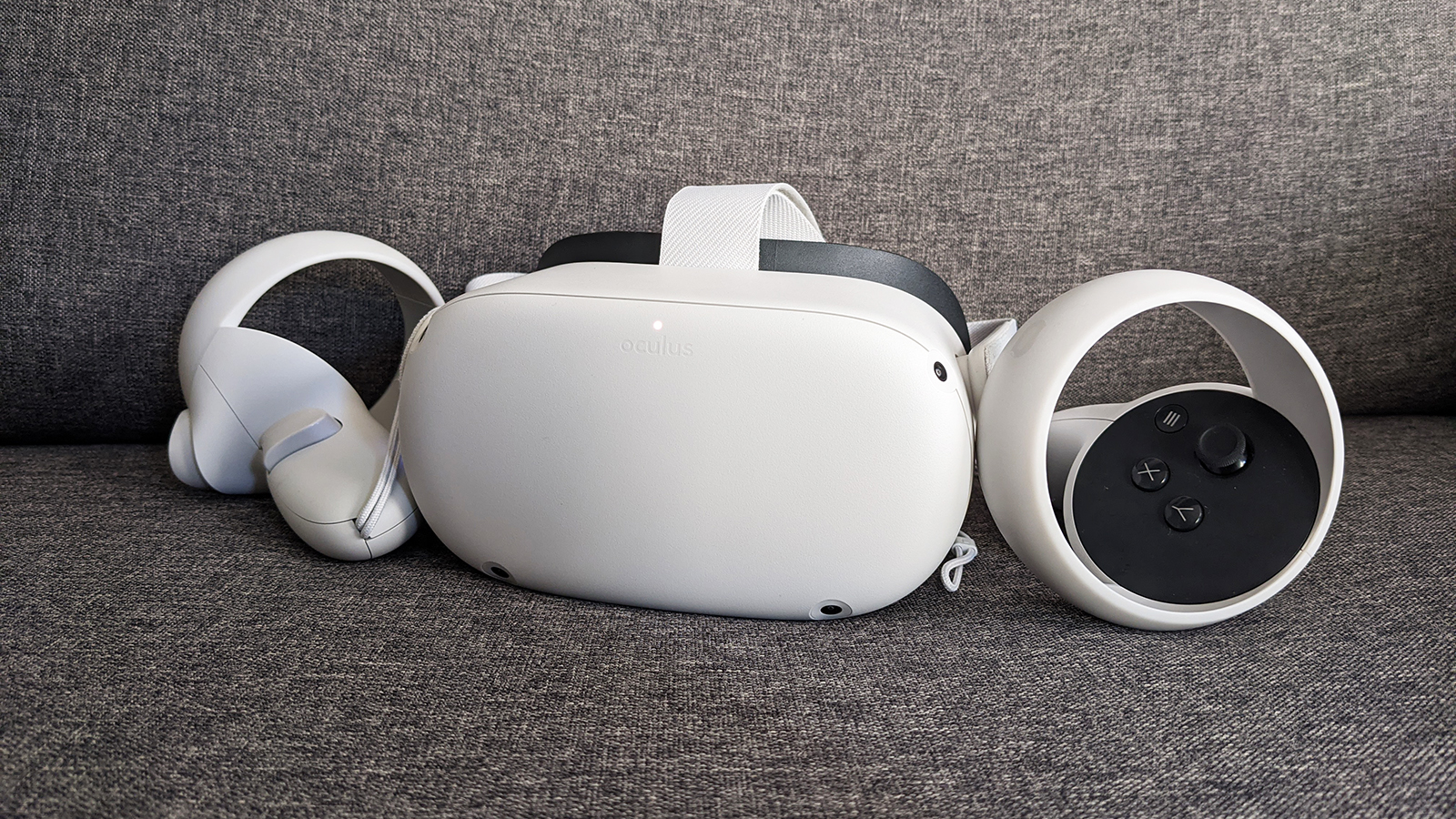
The Oculus Quest 2 improves on its predecessor in significant ways, providing a standalone virtual reality experience that really impresses in terms of performance and price. It's not quite a perfect VR headset, but it's clearly one of the best ones yet.
-
+
Lightweight and comfortable
-
+
Excellent, crisp, vibrant graphics
-
+
Easy to set up and operate
-
-
Still needs more games and apps
-
-
Limited lens adjustments
-
-
A Facebook account is mandatory
Why you can trust T3

The Oculus Quest 2 is here, replacing the original Oculus Quest from 2019 and confirming the Facebook-owned virtual reality company's commitment to standalone headsets from this point on – you won't see another Oculus headset that requires a PC to get running.
You'll still be able to connect this and future Quest headsets to a gaming computer for extra graphics performance, via the ever-improving Oculus Link software and a high-speed USB cable, but it's now the end of the virtual reality road for the Oculus Rift series.
- Our pick of the best gaming laptops around
- Check out the best phones available now
At a starting price of £299 / $299 / AU$479, this is affordable enough to pull a whole new crowd of players into VR gaming, with an all-in-one kit that bundles everything you need to get playing, including just about enough free games to whet your appetite for more.
There's no doubt that standalone headsets were always the future of VR – it was just a question of the components and the technology reaching a good enough standard to work without a PC – so has the Oculus Quest 2 got enough to take virtual reality mainstream?
Oculus Quest 2 review: price and availability
The Oculus Quest 2 is available to preorder now, with shipping and retail availability expected from 13 October. You'll pay £299 / $299 / AU$479 for the 64GB version of the headset, and £399 / $399 / AU$639 for the 256GB edition (games are typically 1-3GB in size, so it depends how many you want to have available at once).
It's worth noting that there are also a range of official accessories available for the Oculus Quest 2 as well, including a premium head strap (complete with extra battery) and alternative face brackets that can replace the default one that comes with the Quest 2 if it doesn't properly fit your face shape.
Oculus Quest 2 review: design and specs
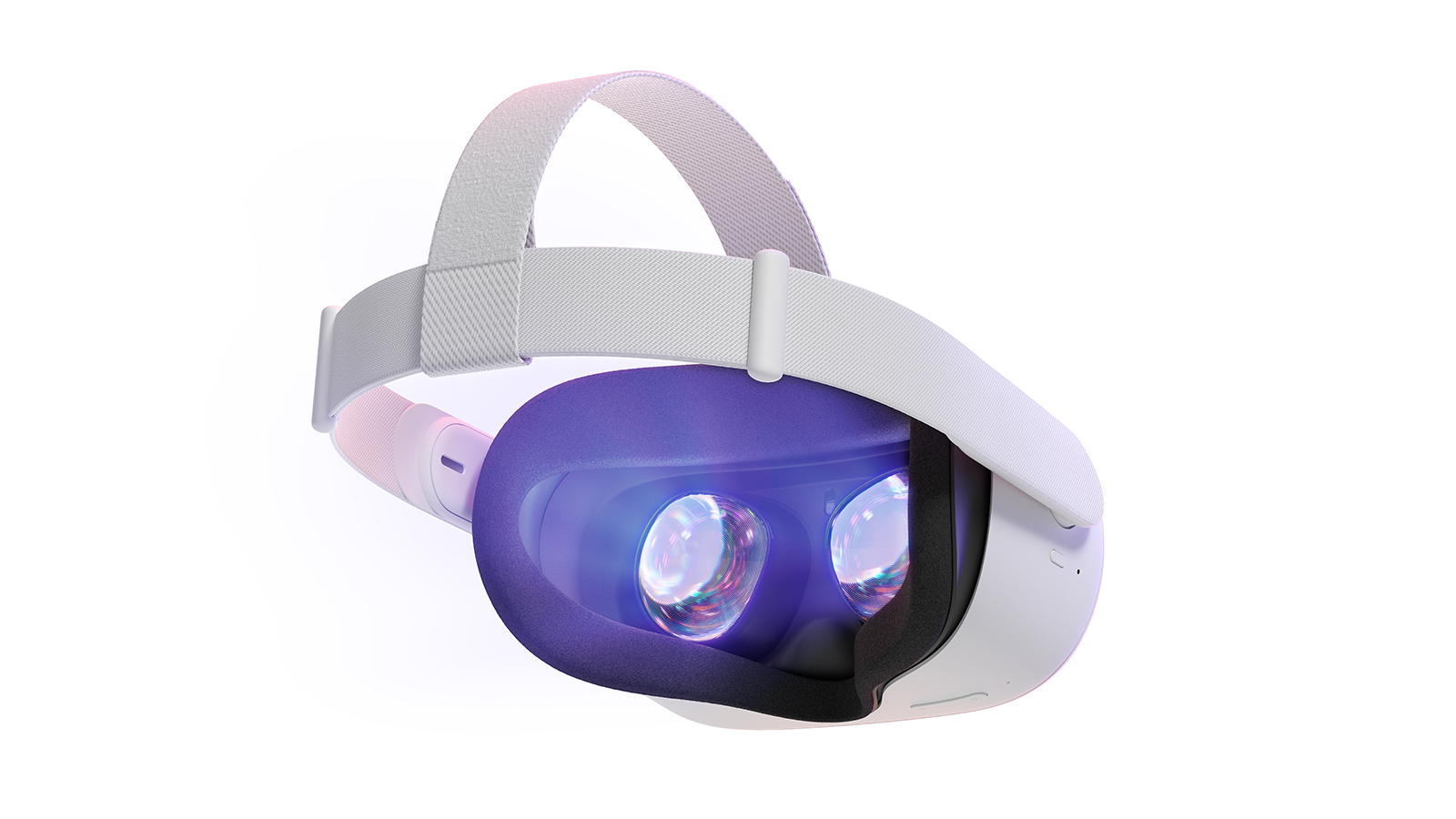
The Oculus Quest 2 is a well-built, solid-feeling piece of gadgetry, though with plenty of plastic it doesn't quite feel luxury level – so just about what you would expect for the asking price, then. At 503 grams it's nice and lightweight, so there are no problems getting it strapped to your face (it's actually slightly lighter than the original Quest): you'll know it's there of course, but it won't weigh your head down in the slightest.
With simple but strong elasticated straps, getting the Oculus Quest 2 strapped tightly and securely to your head isn't difficult at all, and going from opening the box to stepping into VR only takes a few minutes. Clips inside the headset let you choose one of three options for the interpupillary distance (IPD) setting, and we were able to find a position where everything was sharp and focused without too much trouble. There's also a spacer you can put in if you wear glasses.
Inside the Quest 2 we have a Snapdragon XR2 chipset, 6GB of RAM, and either 64GB or 256GB of internal storage – very much on a par with a flagship 2020 phone, and significantly more powerful than the first Quest. With a 1832 x 1920 pixel display for each eye, there are 50 percent more pixels on show than there were with the device's predecessor, and a refresh rate of up to 90Hz is possible (another area where the headset is comparable to the best mobiles of the moment). There's integrated audio, as well as a headphone jack for a more private playing experience.
Marking out a playing space is actually quite fun and works really well – once the Quest 2 detects you're near the edge of it, you'll see boundary lines appear. Oculus recommends a playing space of around two square metres for games that require movement, though you can get by with a little less (you can also use the Oculus Quest 2 while sitting down, if you don't have any space at all, though of course that puts restrictions on the types of games you can play).
- All the best gaming monitors you can buy right now
Oculus Quest 2 review: performance and games
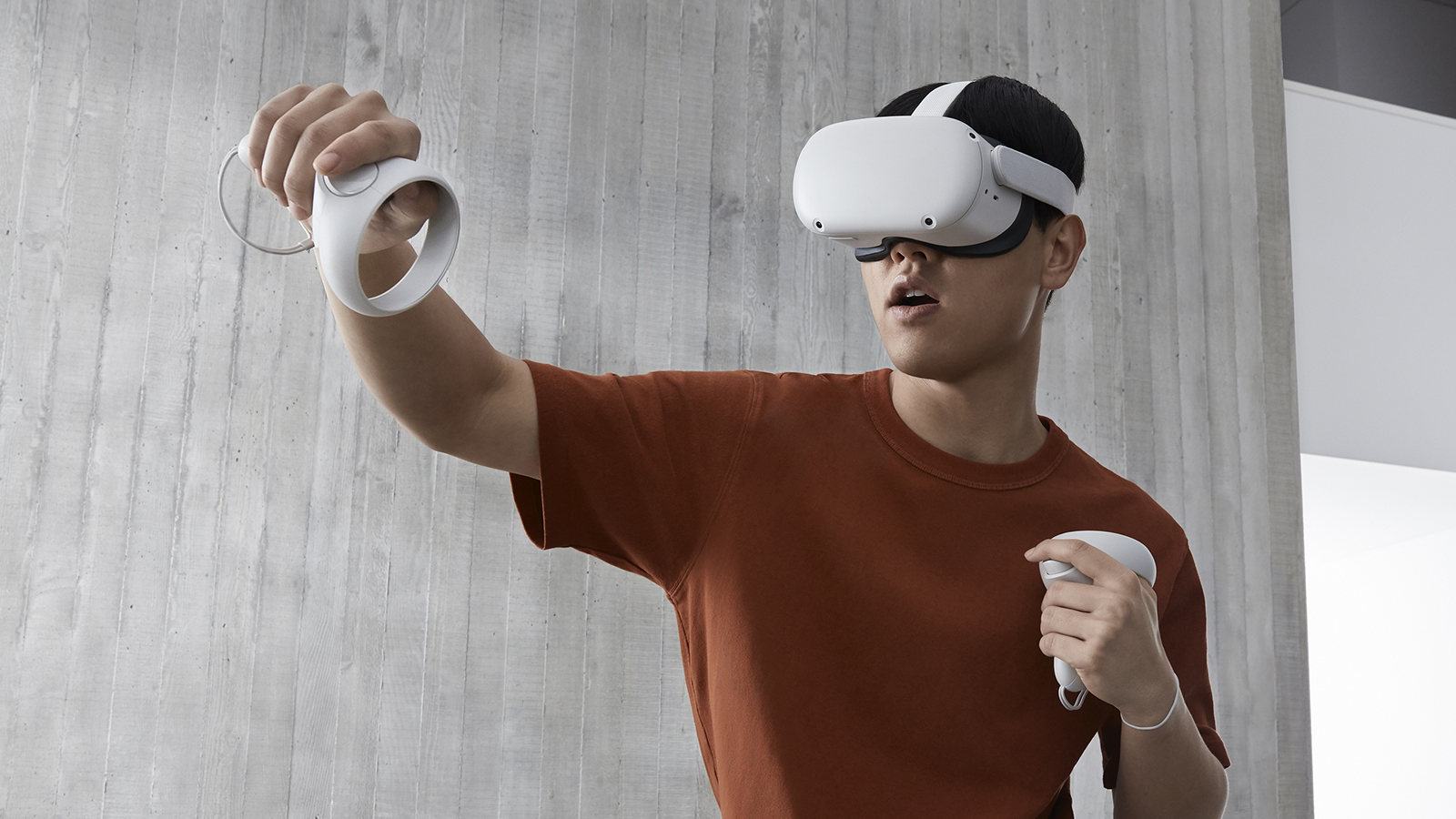
Playing games and running apps on the Oculus Quest 2 is, by and large, a treat: graphics are sharp and bright, the integrated audio is really impressive in its richness (and in the range it covers from quiet to loud), and everything runs without a stutter. The newly updated Touch controllers are comfortable and responsible, and there's even hand tracking in an experimental form for controlling games and navigating around menus – it works pretty well already, but you can tell it isn't quite finished yet.
We'll admit to feeling somewhat nauseous in certain games as we approached the twenty minute mark inside VR, but this is more to do with our disposition and the nature of virtual reality rather than the Oculus Quest 2 – human brains really aren't equipped to see a rapidly moving landscape while our physical body stays still. Your mileage may vary, and indeed the effect is barely noticeable in some games, but it's one reason why this might not be the perfect present for everyone.
As for the game and app selection, it's both stronger than ever (there are now hundreds of titles available) and still some way short of where Oculus would want it to be. There are some really good titles here, and more on the way, but nothing that would make you think you absolutely have to get a Quest 2 – games such as Vader: Immortal and Beat Saber are immersive and enjoyable, but they might not be enough to tempt you to buy a Quest 2 if you weren't already.
In terms of tracking you through space (done entirely without external trackers), the Oculus Quest 2 does an admirable job: we found our movements were instantly and accurately represented inside the games that we played. Glitches and bugs were practically non-existent in our time testing out the headset, and working out how to control everything quickly becomes second nature. Getting into VR has never been easier or quite so much fun.
- Pick out one of the best laptops on the market
Oculus Quest 2 review: other features and battery life
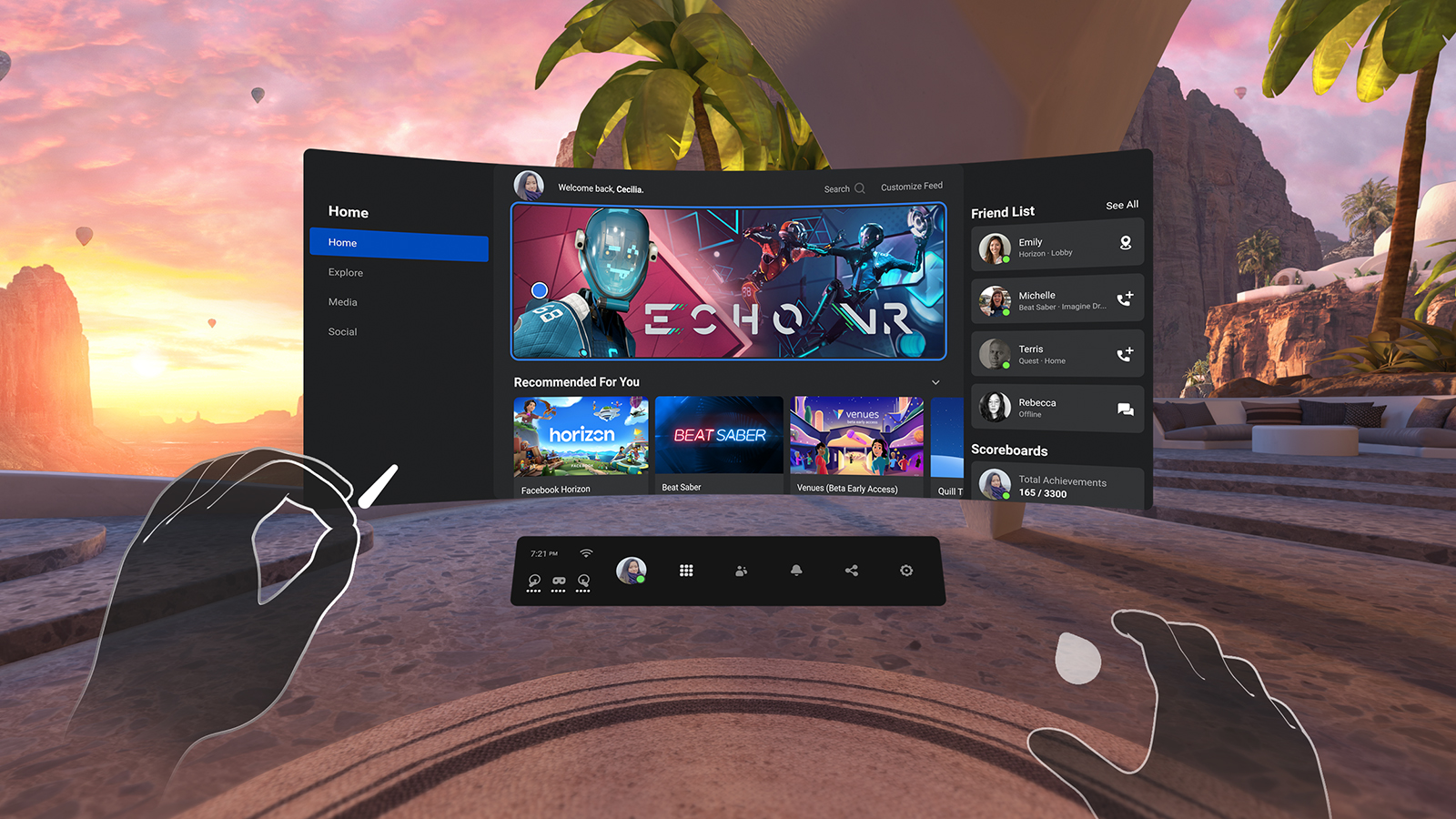
We had no complaints about the quality of the software that comes on board the Oculus Quest 2. Browsing through apps and games is really straightforward and intuitive, and you even have a choice of 'home' settings – from beach villas to spaceships. Plenty of easy-to-follow tutorials are spread throughout the Oculus operating system as well as the individual apps and games themselves.
Plenty of titles that you'll come across on the Oculus Quest 2 are multiplayer, so you can connect up to the web and play with friends (or complete strangers). A microphone is built into the headset for communication purposes, if you need it, though you can use your own headset via the 3.5mm audio jack too. The device also supports beaming the screen to a Chromecast, so other people in the same room as you can see what you're seeing on a connected television.
Oculus says a fully charged Quest 2 should be good for about 2-3 hours before the battery dies, and our testing of the headset seemed to back up those claims. After half an hour or so of playing, the device does get a little hot to the touch on the outside, but not excessively so (and it doesn't make wearing the headset uncomfortable – you'll only notice it if you put your fingers on the outside of the casing). It's nice and quiet in use too.
As for the Touch controllers, a single AA battery powers each of these, and Oculus hasn't said how long these will last (we only tested the Quest 2 for a few days). One nice touch in the design tweaks that have been made from the first-gen controllers is that there's now a space for resting your thumbs, which is more useful than you might think – it saves you accidentally triggering an action or opening a menu when you don't need to.
- Check out the best 4K monitors we've found
Oculus Quest 2 review: price and verdict
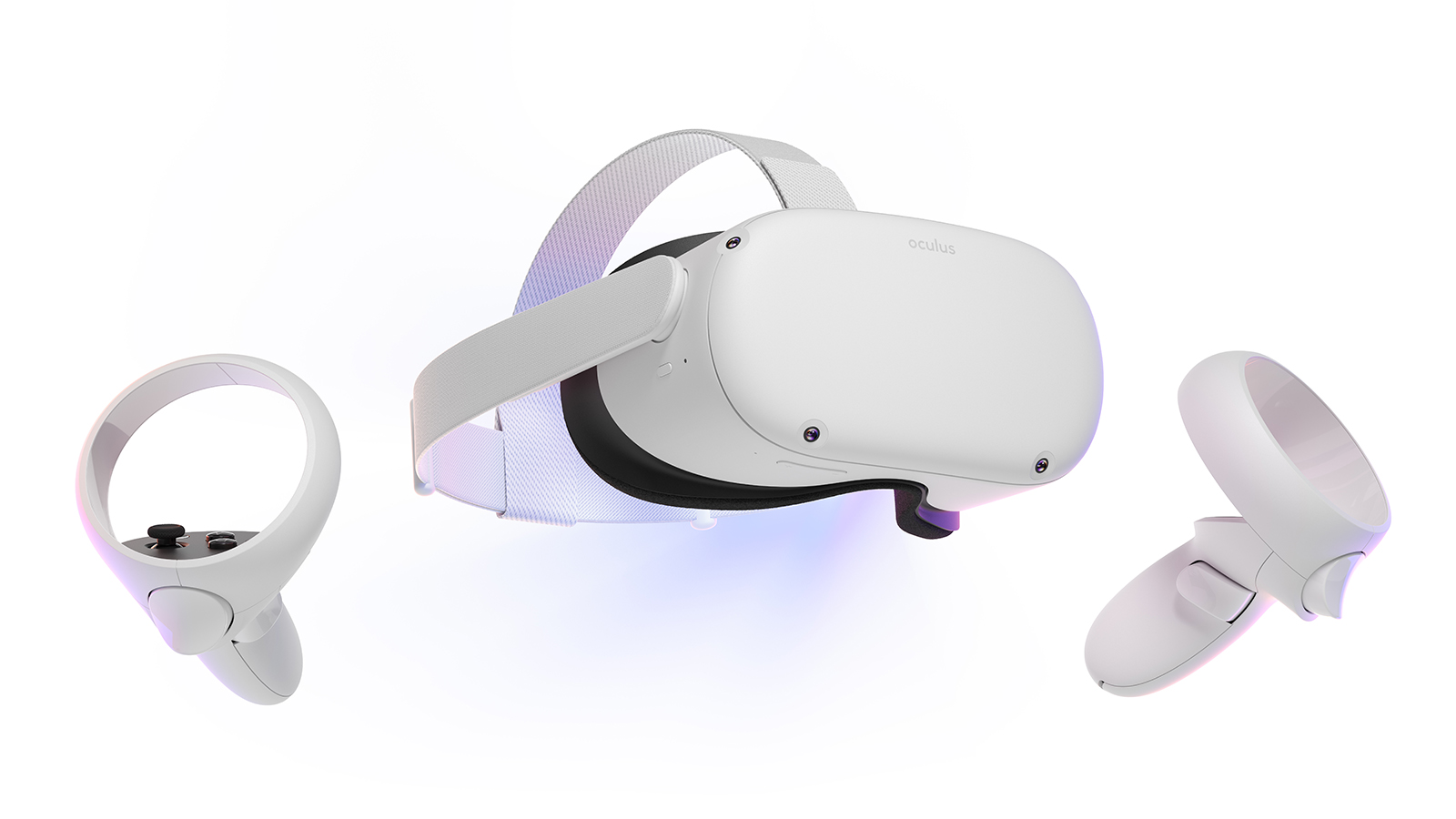
We've been very impressed with the Oculus Quest 2 during our time with it, and the company has even managed to get the price down from its predecessor, despite all of the improvements to the internals. We're talking about Nintendo Switch levels of affordability, and that's going to make this device appealing to a broader range of people than ever before – even those who've never previously thought about giving VR a try.
While headsets such as the HTC Vive Cosmos and the Valve Index are going to offer you a more premium feeling and better graphics – with an attached PC – there's no doubt that the Oculus Quest 2 still has plenty of appeal in terms of making your money go as far as possible. The high-end VR headsets also offer value for money, but they're on a different pay grade, and so will probably only catch the eye of serious gamers.
There are only a few negatives here: VR can still make some people (including us) feel queasy, the app and game selection still has plenty of room for improvement, and Facebook has taken the decision to make a Facebook account mandatory for using the Quest 2. That's not something that's really going to endear it to users, but you may consider giving up even more data to the social network a worthwhile trade-off for everything this hardware brings with it.
Compare the Oculus Quest 2 with the high prices, complicated setup, and external tracker requirements of VR headsets of years gone by, and it's obvious that steady, substantial progress is being made in the field. The headset is good enough and affordable enough to find its way into a lot more homes over the next few months, though we think another hardware revision and some really jaw-dropping games will be required before an Oculus device becomes a must-have for gamers.
- These are the best gaming phones available now
Sign up to the T3 newsletter for smarter living straight to your inbox
Get all the latest news, reviews, deals and buying guides on gorgeous tech, home and active products from the T3 experts
Dave has over 20 years' experience in the tech journalism industry, covering hardware and software across mobile, computing, smart home, home entertainment, wearables, gaming and the web – you can find his writing online, in print, and even in the occasional scientific paper, across major tech titles like T3, TechRadar, Gizmodo and Wired. Outside of work, he enjoys long walks in the countryside, skiing down mountains, watching football matches (as long as his team is winning) and keeping up with the latest movies.
-
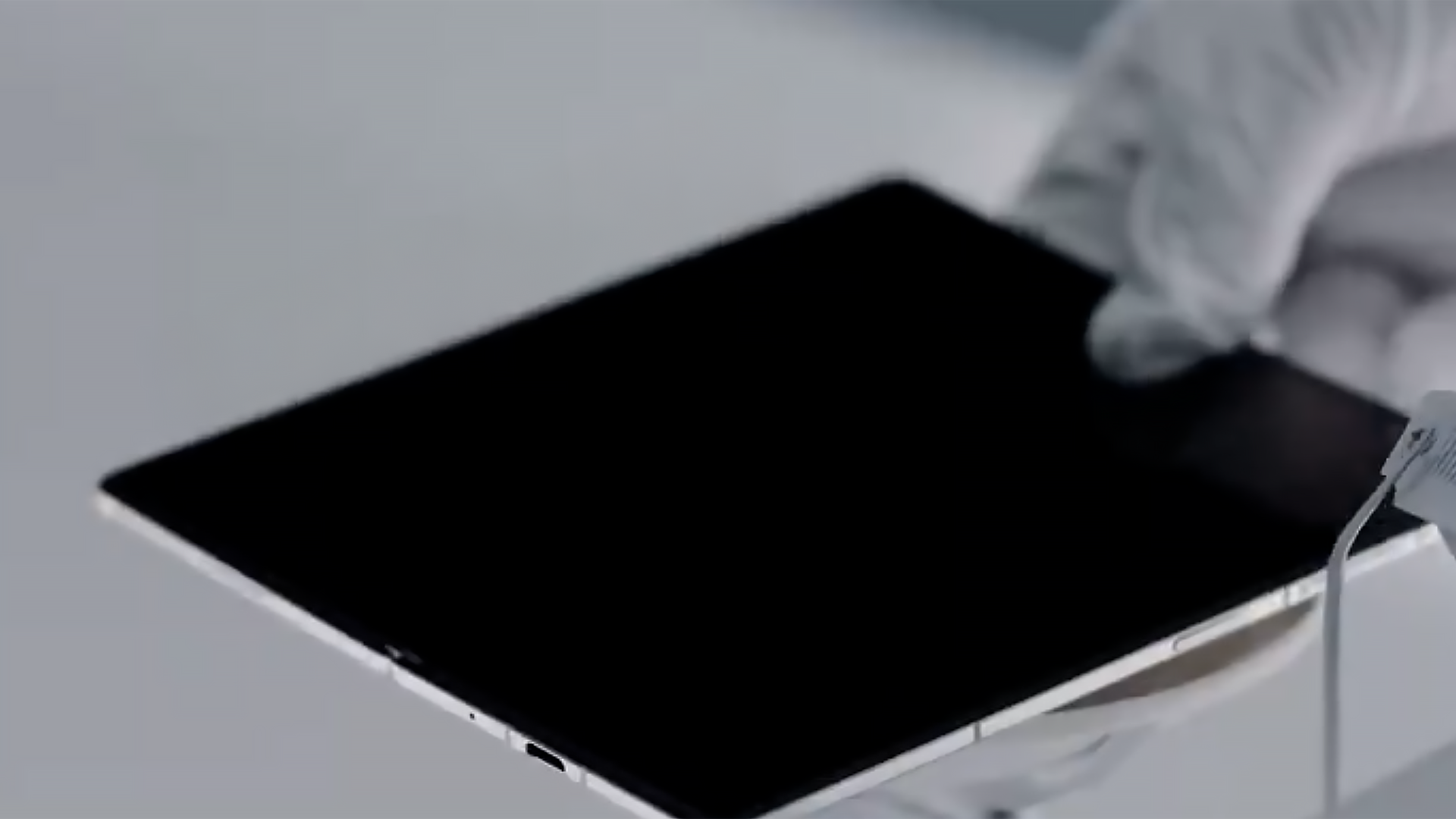 Thinner, lighter Samsung Galaxy Z Fold 7 rival teased
Thinner, lighter Samsung Galaxy Z Fold 7 rival teasedVideo shows this device will weigh less than 219g and could be a Samsung beater
By Britta O'Boyle Published
-
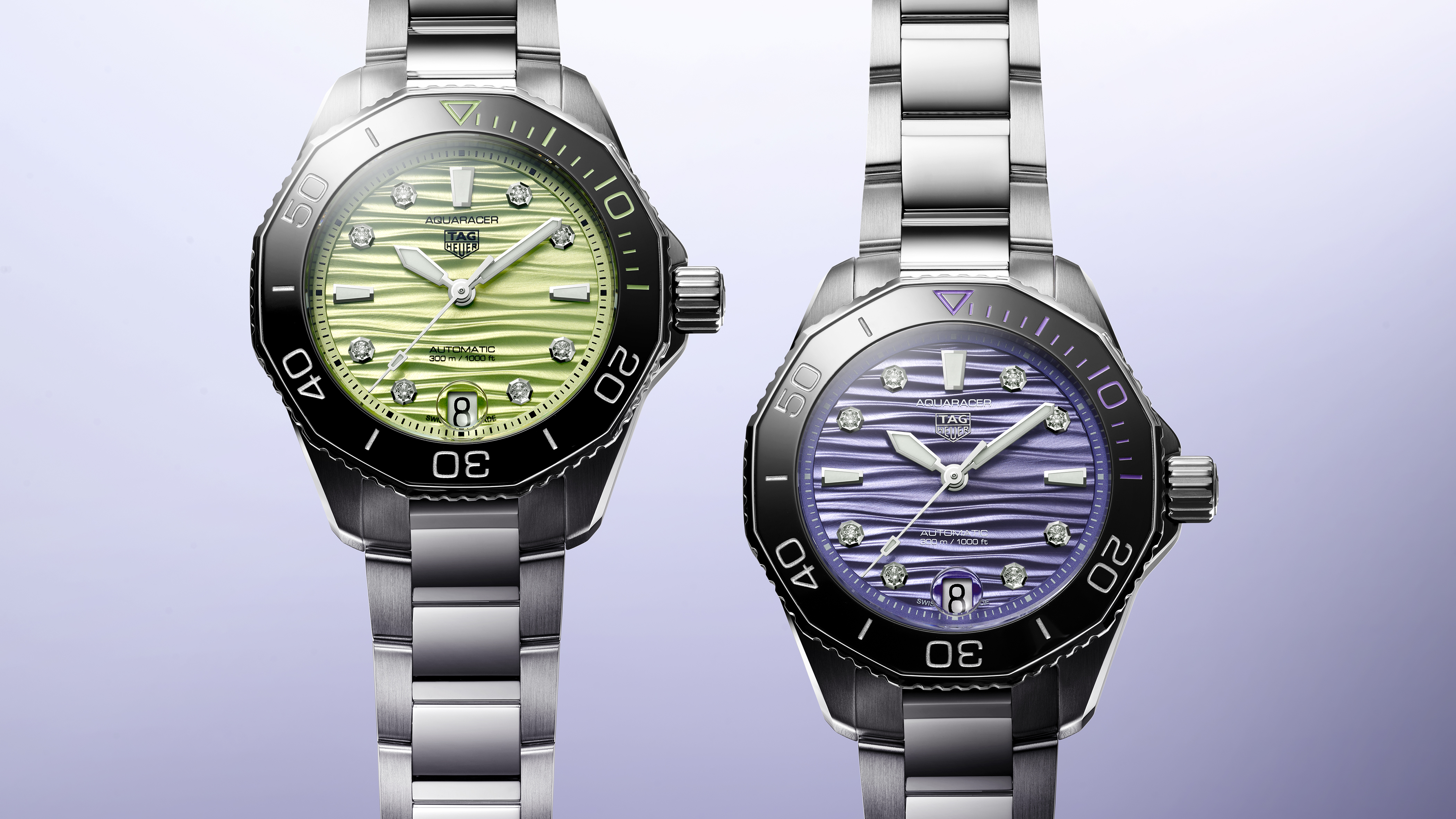 New TAG Heuer Aquaracer dive watches show just how pretty they can be
New TAG Heuer Aquaracer dive watches show just how pretty they can beFor a diver with style and substance
By Sam Cross Published
-
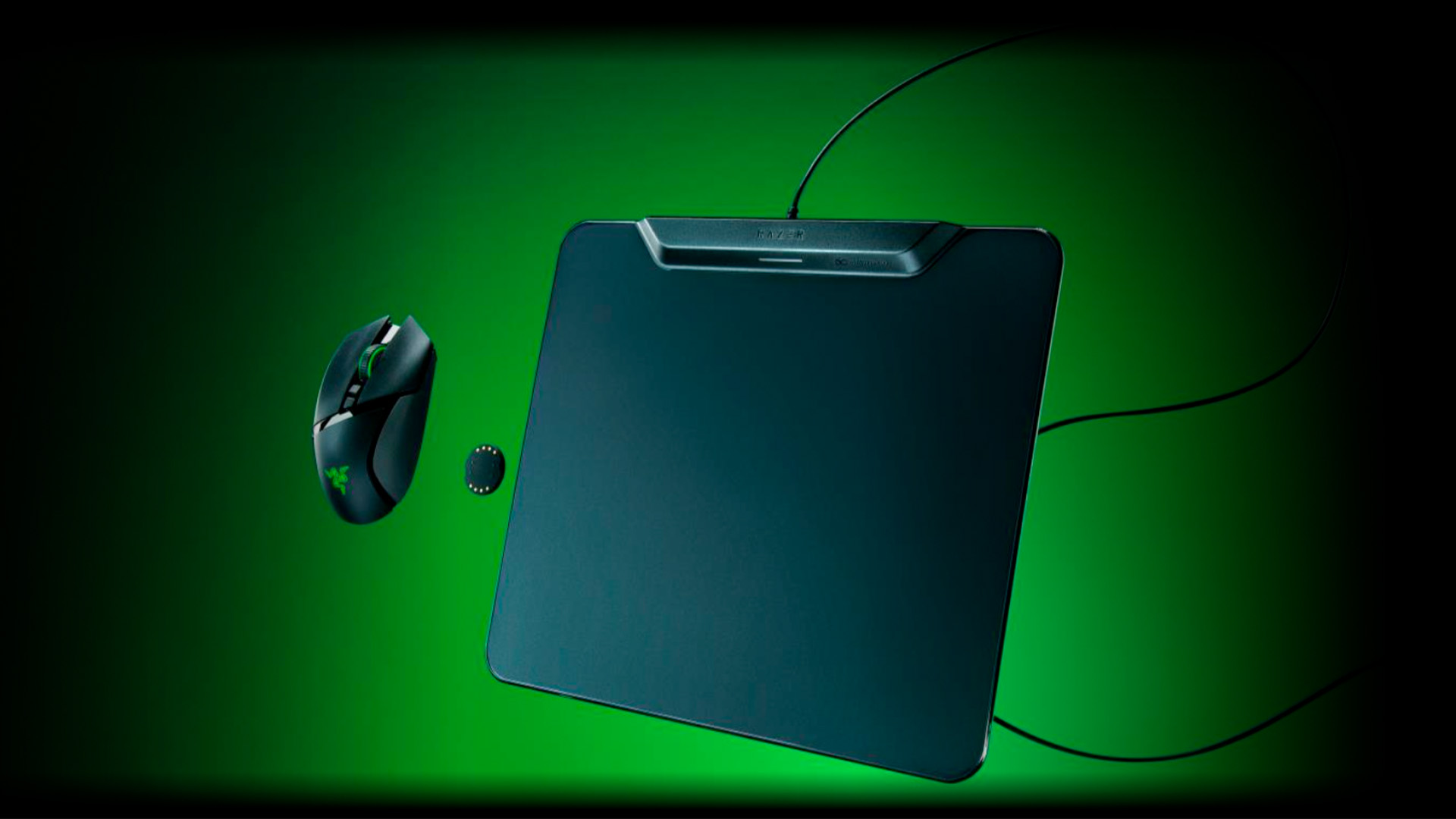 I wasn't sure about Razer's new charging mousemat, until I tried it
I wasn't sure about Razer's new charging mousemat, until I tried itThe Hyperflux V2 is undeniably impressive
By Max Freeman-Mills Published